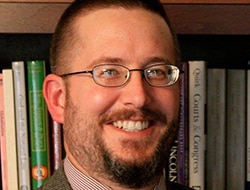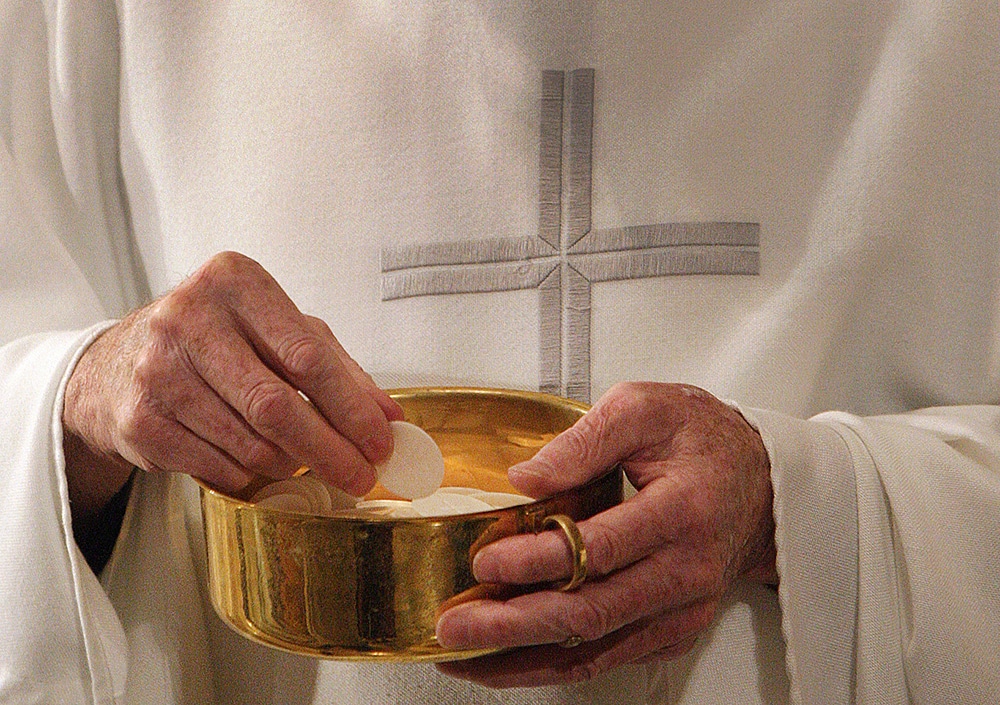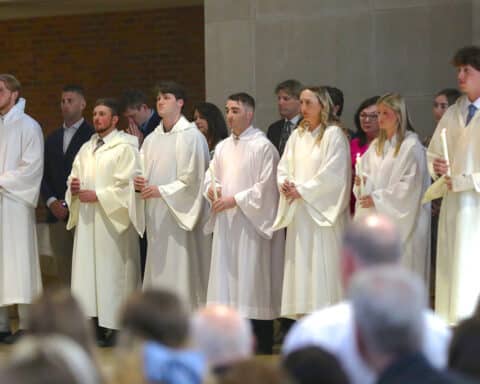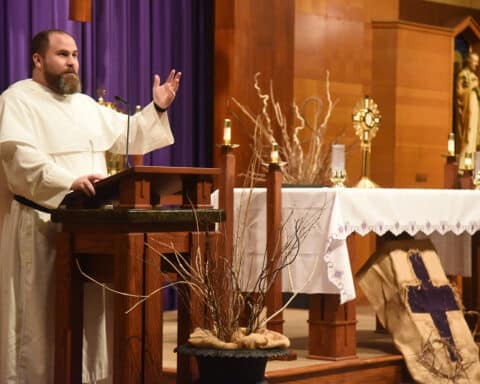
Much of the commentary on these results has chalked the problem up to decades of bad catechesis. And there’s something to that: Only 50% of all self-identified Catholics were able to choose the correct teaching about the Eucharist when presented with a question with only two answers. It’s hard to state what the Church teaches if you don’t even know what it teaches.
But the problem runs deeper: Some who know what the Church teaches reject that teaching — including 37% of weekly Mass-goers. What does such widespread rejection signify?
There are three elements at work here: the gift of faith, a Catholic imagination and an intellectual understanding of what the Church teaches. This may seem surprising, but as someone who has spent his entire career writing and speaking and attempting to explain philosophical and theological concepts in ways that are accessible to everyone, I firmly believe that a lack of intellectual understanding of what the Church teaches is the least of our problems.
Consider the history of the Church up through the last of the first seven ecumenical councils (the second council of Nicaea in 787). Each of those councils was called to address one or more significant theological controversies. The point of these councils was never to tell people what to believe, but to bring intellectual clarity to what Christians already believed. And those beliefs were the product of experience — the experience of a lived relationship with Jesus Christ, which flowed from the supernatural gift of faith.
“Faith is the realization of what is hoped for and evidence of things not seen” (Heb 11:1). When we see with the eyes of faith, we don’t blindly accept something simply because the Church tells us it’s true; we know that it is true because the gift of faith allows us to experience the depths of reality that go beyond what we can see without that gift.
For us to experience those depths of reality, however, we must nurture our faith. We don’t have to reject the gift of faith, to renounce the God who gave it to us, before those depths of reality become harder and harder to see; we have only to neglect it, to fail to feed it, to let it become like the fig tree that didn’t bear fruit or the talent that the servant chose not to invest but buried in a field instead.
In his novels, Walker Percy often portrayed Christians of his native South — good people, nice people, but people whose imaginations were wrapped up entirely with the concerns and obsessions, the ephemera and abstractions, of the modern world. They may have had the gift of faith, but for lack of a Christian imagination, it was starving on the vine.
Thirty-seven percent of weekly Mass-goers don’t believe what the Church teaches about the Eucharist not because they have rejected the gift of faith but because they have neglected to feed it. Their imagination does not let them see beyond the bread and wine to the Last Supper, much less Christ hanging on the cross, and the blood and water flowing from his spear-pierced side. They don’t recognize Jerusalem in their own hometown, and the altar of their parish church as the summit of Mount Calvary. And so, as they kneel at the consecration, they cannot fully join the cloud of witnesses gathered around that altar, the patriarchs and prophets, the saints and martyrs, whose own gift of faith allowed them to plumb the depths of reality and embrace the evidence of things not seen.
Scott P. Richert is publisher for Our Sunday Visitor.





